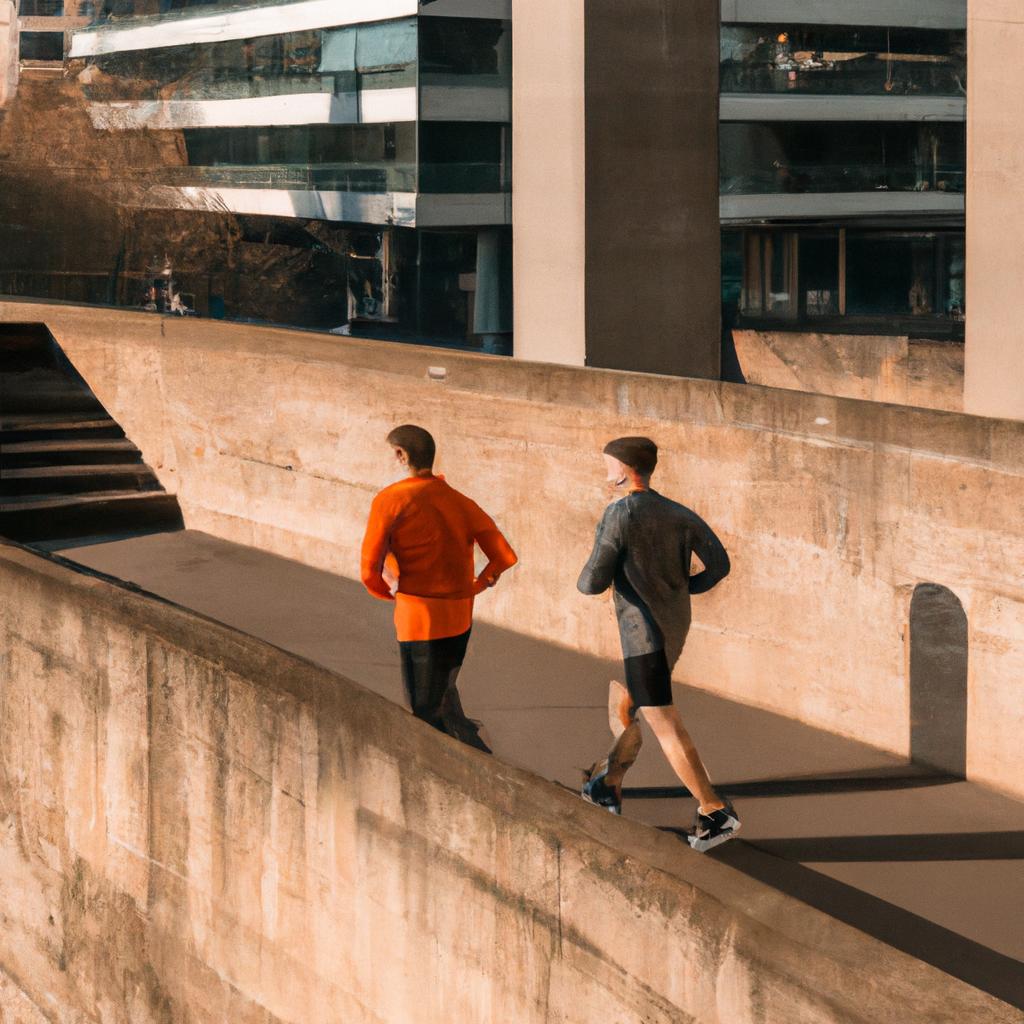**”Urban Fitness and Mental Health: Exploring the Role of City Environments in Shaping Positive Psychological Outcomes Through Physical Activity”**
Urban Fitness and Mental Health: Exploring the Role of City Environments in Shaping Positive Psychological Outcomes Through Physical Activity
In recent years, the relationship between physical activity and mental health has garnered significant attention. Urban environments, with their unique mix of opportunities and challenges, play a crucial role in shaping our fitness habits and, consequently, our mental well-being. This blog post aims to explore how city landscapes can foster positive psychological outcomes through physical activity.
The Urban Landscape: A Double-Edged Sword
Cities are vibrant hubs of activity, offering numerous avenues for exercise. However, they also present challenges that can hinder one’s fitness journey. For instance, densely populated areas may have limited green spaces, making it difficult for residents to find places to exercise outdoors. On the other hand, urban environments often provide access to gyms, parks, and community centers. Therefore, understanding how to navigate these spaces is essential for maximizing the benefits of urban fitness.
Opportunities for Physical Activity
Urban areas are rich in opportunities for physical activity. For example, many cities have invested in bike lanes and pedestrian-friendly pathways, encouraging walking and cycling. Moreover, public parks and recreational facilities often host organized sports, yoga classes, and fitness events. Consequently, individuals living in cities can easily engage in various forms of exercise, from jogging along the waterfront to participating in group fitness classes in community parks.
Barriers to Fitness
Despite the myriad of options available, urban dwellers may still face barriers to physical activity. High levels of pollution, crime, and traffic congestion can deter individuals from exercising outdoors. Furthermore, the fast-paced city lifestyle often leads to time constraints, making it challenging to prioritize fitness. Therefore, it is crucial to address these barriers to ensure that urban environments can effectively support mental health through physical activity.
Nutrition Tips for Urban Dwellers
To complement physical activity, nutrition plays a critical role in enhancing mental health. However, urban environments can sometimes promote unhealthy eating habits due to the prevalence of fast food outlets and convenience stores.
Balanced Diet Essentials
To maintain a balanced diet, urban residents should focus on incorporating whole foods into their meals. This includes:
– **Fruits and Vegetables**: Aim for a variety of colors to ensure a wide range of nutrients.
– **Lean Proteins**: Incorporate sources such as chicken, fish, legumes, and nuts.
– **Whole Grains**: Opt for brown rice, quinoa, and whole-grain bread over refined options.
In addition, meal prepping can be a game-changer for busy city dwellers. By planning meals ahead of time, individuals are less likely to resort to unhealthy fast food options.
Smart Snacking
Moreover, healthy snacks can help maintain energy levels throughout the day. Some great options include:
– **Greek Yogurt**: High in protein and probiotics.
– **Hummus and Veggies**: A satisfying and nutritious combination.
– **Nuts and Seeds**: Packed with healthy fats and protein.
By making conscious food choices, urban residents can support their physical activity and mental health.
Exercise Advice for City Living
Finding ways to incorporate exercise into a busy urban lifestyle can be challenging yet rewarding. However, with some creativity and planning, it is possible to stay active amidst the hustle and bustle.
Incorporating Movement into Daily Life
One effective strategy is to integrate physical activity into daily routines. For instance:
– **Walking or Biking to Work**: This not only saves money but also provides a great workout.
– **Utilizing Public Transport**: Get off a stop early and walk the rest of the way to build in exercise.
– **Engaging in Active Social Activities**: Instead of meeting friends for coffee, consider group hikes or fitness classes.
Consequently, these small changes can lead to significant improvements in both physical and mental health.
Group Fitness and Community Support
Furthermore, joining local fitness classes or sports leagues can enhance motivation. Participating in group activities not only provides accountability but also fosters social connections. As a result, these social interactions can improve mental health by reducing feelings of loneliness and isolation.
Health Benefits of Urban Fitness
The benefits of engaging in physical activity in urban environments extend beyond just physical health. Numerous studies have shown a strong connection between exercise and improved mental well-being.
Enhanced Mood and Reduced Anxiety
Physical activity has been proven to release endorphins, the body’s natural mood elevators. Therefore, regular exercise can significantly reduce symptoms of anxiety and depression. Furthermore, engaging in outdoor activities—such as walking in a park or cycling through the city—can provide additional mental health benefits due to exposure to nature.
Improved Cognitive Function
Moreover, exercise has been linked to enhanced cognitive function. Regular physical activity can improve memory, focus, and overall brain health. This is particularly important in urban settings, where distractions are abundant, and mental clarity is vital.
Conclusion
In conclusion, urban environments offer both opportunities and challenges for promoting fitness and mental health. By understanding how to navigate these landscapes, individuals can harness the power of physical activity to foster positive psychological outcomes. Incorporating balanced nutrition, finding ways to stay active in daily life, and engaging with community resources are all essential strategies. Ultimately, embracing urban fitness can lead to improved mental health and a more fulfilling life in the city. Therefore, let us take advantage of the urban jungle and cultivate a lifestyle that prioritizes both physical activity and mental well-being.
FAQ
What are some benefits of exercising in urban environments?
Exercising in urban environments can lead to numerous benefits, including enhanced mood and reduced anxiety due to the release of endorphins during physical activity. Additionally, engaging in outdoor activities can provide mental health benefits from exposure to nature. Regular exercise is also linked to improved cognitive function, which is crucial in bustling city settings where distractions are common.
How can urban dwellers overcome barriers to physical activity?
Urban dwellers can overcome barriers to physical activity by integrating exercise into their daily routines, such as walking or biking to work, using public transport with an extra stop for walking, and engaging in active social activities. Addressing challenges like pollution and crime involves seeking out safe and clean areas for exercise, such as public parks and community centers, and being mindful of time constraints by planning workouts efficiently.
What nutrition tips can help support mental health for city residents?
To support mental health, urban residents should focus on a balanced diet that includes whole foods, such as a variety of fruits and vegetables, lean proteins, and whole grains. Meal prepping can also be beneficial in preventing unhealthy eating habits. Additionally, choosing healthy snacks like Greek yogurt, hummus with veggies, and nuts can help maintain energy levels throughout the busy day, complementing the physical activity for better mental well-being.















Post Comment